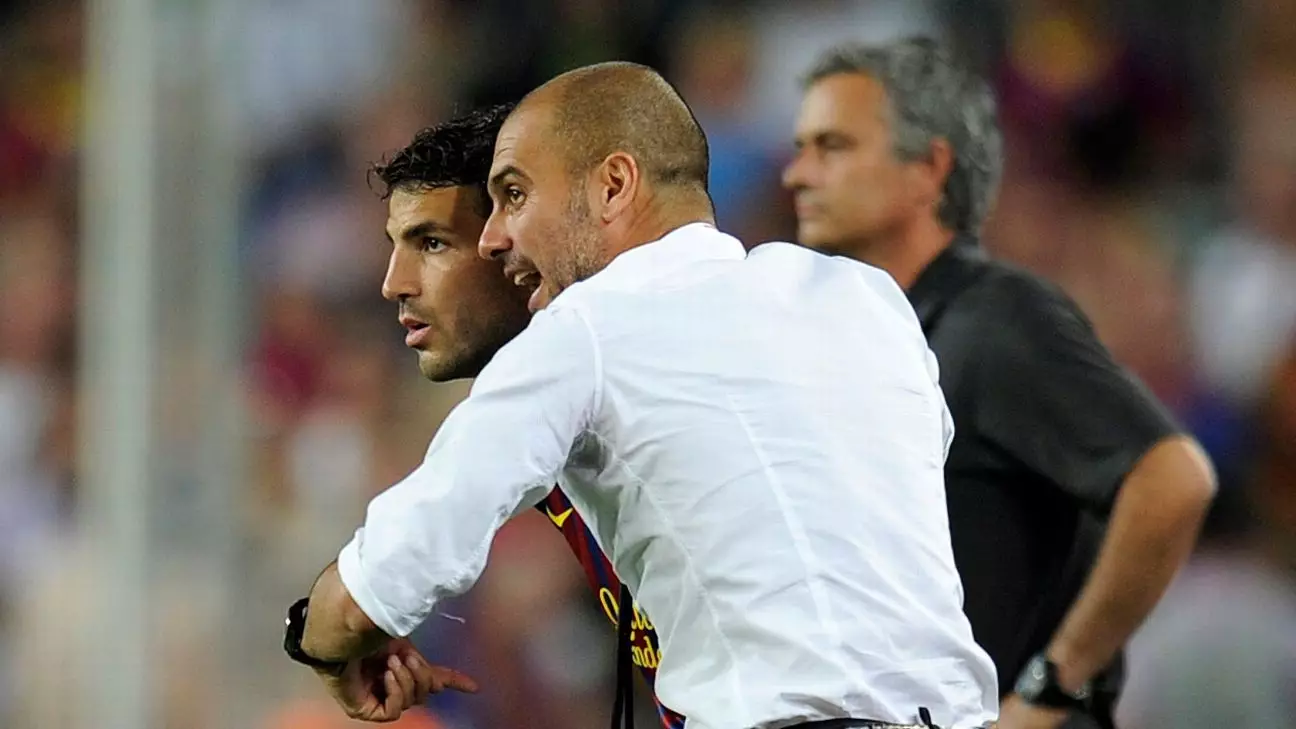Cesc Fàbregas, a celebrated figure in football, has transitioned from a player to a coach, currently leading the Serie A club Como. His rich tapestry of experiences, woven through collaborations with some of the game’s most authoritative coaches, alludes to a profound understanding of both the tactical and psychological facets of football. This article examines the influence of these coaches on Fàbregas’s philosophy as he embarks on his coaching journey.
Cesc Fàbregas’s time at Barcelona under Pep Guardiola stands out as a pivotal chapter in his career. Guardiola, widely acknowledged for his tactical acumen, fundamentally reshaped Fàbregas’s approach to the game. According to Fàbregas, Guardiola’s meticulous study of opponents and his acute tactical discussions were instrumental in enhancing his own understanding of football. He emphasizes the necessity for players to be equipped with the right solutions in real-time, which speaks volumes about Guardiola’s emphasis on preparation and adaptability.
Under Guardiola’s stewardship, Fàbregas learned the essence of player positioning and movement, crucial elements that he now tries to instill in his players at Como. This tactical groundwork has allowed him to formulate strategies that not only focus on skills but also encourage young players to grasp the evolving dynamics of a match. The ability to read the game and react accordingly is a lesson that Fàbregas regards as one of his most valuable coaching tools.
In addition to tactical genius, Cesc Fàbregas attributes valuable lessons in player management to his former mentor, Arsène Wenger. Having spent eight fruitful seasons at Arsenal, Fàbregas learned that patience is paramount when dealing with players, especially younger ones. He remarks on the modern coaching landscape, where the pressure to achieve immediate results often overshadows the developmental aspect of nurturing talent over time.
Fàbregas’s perspective is a refreshing call for a return to the more humane side of coaching, where developing a player’s potential is prioritized over short-term gains. He stresses the need for a supportive environment that allows young talents the grace to make mistakes and learn from them. By instilling this ethos at Como, he hopes to cultivate an atmosphere that respects the developmental process rather than succumbing to the tyranny of immediate results.
The Bold Leadership of José Mourinho
José Mourinho, another luminary in Fàbregas’s coaching journey, provided a contrasting yet equally important approach. Under Mourinho’s guidance at Chelsea, Fàbregas experienced a different style of leadership—one marked by decisiveness and courage. Fàbregas recalls Mourinho’s willingness to make significant tactical changes, including multiple substitutions at halftime, exemplifying his bravery in decision-making.
Mourinho’s ability to read the psychological state of his players and adapt his strategies accordingly resonated deeply with Fàbregas. This insight into the mental aspects of coaching is something Fàbregas recognizes as critical for his role at Como. Understanding the emotional landscape of players, recognizing who is ready to step up, and making bold decisions are aspects of Mourinho’s coaching style that Fàbregas aims to emulate.
Embracing Coaching Challenges
As Cesc Fàbregas embarks on his coaching journey, he is faced with the daunting task of integrating these lessons into his philosophy. Balancing tactical knowledge, patience, and bold leadership presents a challenging but exciting opportunity as he molds the next generation of players. The transition from player to coach is a significant leap, but with the lessons learned from Wenger, Guardiola, and Mourinho, Fàbregas appears well equipped to take on the challenges of coaching in Italy’s competitive Serie A.
Fàbregas’s reflections on his experiences reveal a multi-faceted approach to coaching that honors the depth of knowledge acquired throughout his career. As he continues his journey at Como, his commitment to blending tactical brilliance, patient mentorship, and bold leadership will likely shape his coaching legacy and influence the future of his players. Through Cesc Fàbregas, we see the evolution of not just a coach, but a custodian of football’s rich pedagogical traditions.

